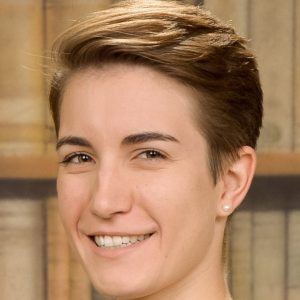
The University of Vienna is a public university in Vienna, Austria, which was founded in 1365 and is the oldest university in the German-speaking world. With its long and rich history, the University of Vienna has developed into one of the biggest universities in Europe, and also one of the most renowned, especially in the Humanities. It is associated with 15 Nobel prize winners and has been the academic home of a large number of figures both of historical and academic importance.
The Center for Translation Studies (Zentrum für Translationswissenschaft) of the University of Vienna is a faculty-level organizational unit with a total of 140 members of teaching staff and more than 4000 students.
It focuses on teaching and research in the area of translation studies, which includes such fields of activity as translation, interpreting, terminology and intercultural communication. The study programs offered at the Center include a BA in Transcultural Communication, an MA in Translation and a PhD program in Transcultural Communication. Professional education in the Master’s program is offered in 14 different languages and covers such domains as conference interpreting, community interpreting, literary translation, media translation, terminology management, translation technologies, localization, multilingual content management and technical communication.

Center for Translation Studies
The Center for Translation Studies has extensive experience in national and EU-funded projects, with a strong focus on language industry-related collaboration and projects designed to enhance accessibility. The Center is a member of a number of international cooperation and exchange networks promoting professional recognition and best practice. These include, in particular, the EMT Network (European Master’s in Translation) and CIUTI (Conférence Internationale permanente d’Instituts Universitaires de Traducteurs et Interprètes).The educational programs offered at the Center for Translation Studies reflect a special commitment to interpreter training, which dates back to the founding of the “Institute for Interpreter Training” at the University of Vienna as early as the 1940s.
Aside from recent didactic initiatives in the fields of court interpreting and community interpreting, teaching and research expertise at the Center have traditionally focused on simultaneous interpreting, a complex interlingual language processing skill assumed to be very closely related to the task of interlingual live subtitling using speech recognition (i.e. interlingual respeaking). Members of the Center’s teaching staff, such as Hildegund Bühler and Ingrid Kurz, gained international recognition for carrying out pioneering research on simultaneous interpreting, and Ingrid Kurz, in particular, participated in earliest experiments involving interpreters for the production of live interlingual subtitles in the 1990s. Interpreting researchers at the Center are building on this rich legacy, and draw on a wealth of experience in training and assessment represented by some two dozen interpreting instructors, most of whom are practicing professionals.
In the present project, expertise in the areas of simultaneous interpreter training as well as audiovisual translation and translation technologies will be harnessed to develop a task and competence profile for interlingual live subtitling using speech recognition. This work will be led by Prof. Franz Pöchhacker, an internationally known scholar of interpreting, and carried out in collaboration with members of the Center’s teaching staff, including Birgit Grübl, MA, and Dr Florence Hetzel.










